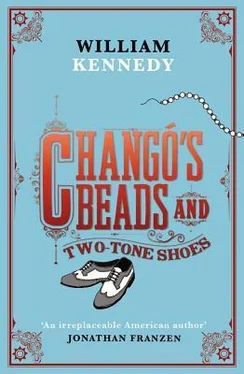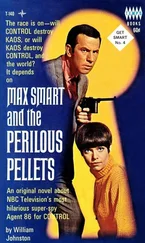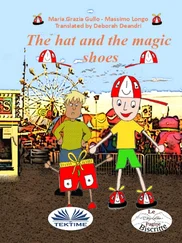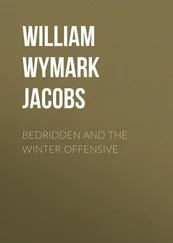Jake Hess cocked his head and said, “Bobby Kennedy?”
If Jake knew that Quinn was talking about Tremont thinking about shooting Alex Fitzgibbon and not Bobby, who was already shot, he’d pick up the phone and call Alex; for Jake, though now counsel for the newspaper, had for forty years been part of the legal brain trust of the Democratic political machine that ran this town — Patsy McCall and Roscoe Conway and Elisha Fitzgibbon, and now Elisha’s son, Alex Fitzgibbon. And Jake knew where all the bodies were buried. Yet Quinn never trusted anybody in politics more than he trusted Jake Hess, a principled man who would be the first person Quinn called if he went to jail, which was why he was now talking to Jake, who would know which way to move through this conundrum. Jake’s parents were Russian Jews who had fled the pogroms, a cultured man with ashen hair, gold-rimmed spectacles, gold watch chain looped across his vest, never without his suitcoat, soft-spoken, a 24-karat smile, and a conscience that, against the odds, had survived the political wars.
“You’re saying Tex is the one who shot Bobby?” Jake asked.
“No, Tex was here in town, too drunk even to shoot himself. Bobby’s just my for-instance,” Quinn said.
“Some for-instance.”
“Roxy had somebody else in mind, but I can’t get specific yet.”
“What’s your question?”
“Can they arrest Tex just for being ready to shoot somebody like Bobby Kennedy?”
“He would have to commit an overt act before anybody could prosecute him,” Jake said.
“What about being part of a conspiracy?”
“You need the overt act.”
“Is giving Tex an AR-15 and taking him for target practice and giving him money to do a shooting — is that an overt act?”
“Any witnesses?”
“I don’t know, but Tex says he’s still got the AR-15.”
“An overt act isn’t necessarily a criminal act.”
“What about trying to talk somebody into a crime?”
“Criminal solicitation. But you need something that puts it into play.”
“What if somebody like me finds out about a conspiracy or a criminal solicitation? If I don’t tell anybody is that a crime?”
Jake’s phone rang and he mostly listened to whoever it was, not looking at Quinn. When he hung up he said, “That was your publisher.”
“Penn?”
“Penn. He mentioned your assassin and said the Mayor is his target.”
“He talks too much,” Quinn said. “See why I can’t use names? He probably already called the Mayor.”
“He hasn’t but he wonders if he should.”
“Did he call the FBI?”
“He wants to.”
“You didn’t tell him to go ahead, did you?”
“I said I’d call him back.”
“What about when I go out that door, will you call the Mayor and give him my news?”
“I think he’d rather hear it from you.”
“I tell the Mayor somebody’s planning to shoot him, that’s your legal advice?”
“He’s had threats before. I’m sure he’d appreciate the tip.”
“How do I protect Tex?”
“He’s safe. He hasn’t done anything wrong.”
“What if I don’t tell the Mayor and somebody actually shoots him?”
“You might have a problem, but not a legal one.”
“Guilt?”
“Guilt is an elective. Reprisal, perhaps?”
“If I’m arrested will you represent me?”
“Only if you feel guilty.”
“You think this will make a good book?”
“Your friend Tex, you mean?”
“Everything that’s happening, the whole megillah. Who’d believe what’s going on right this minute? Tex, Roxy, Claudia, Roy Mason, Matt Daugherty, Bobby, riots, vigils, my wino friends, and maybe you and me thrown in for the hell of it. There’s a lot of mystery and they’re all telling me to pay attention to them.”
“Sounds like a panoramic newsreel.”
“That’s not worth writing. If I can’t find a focus the hell with everybody. People like the title — The Slum Book — but they don’t like the subject. Another protest book? The woods are full of them. I see heroes but editors see winos and bums. Who wants to read about bums, especially bums in Albany?”
“They don’t know our bums.”
“I also want to put Cuba in it.”
“Quite a place, Cuba. I went to Havana in ’27 when Mayor Goddard was thrown out of an open car. Do they have any bums in Cuba nowadays?”
“No bums allowed. They’re all communists.”
“Society isn’t complete without bums.”
“Tell that to Fidel. You know my grandfather wrote about Cuba. You ever read his books?”
“I remember he was quite an achieved figure. What was his name?”
“Daniel Quinn.”
“Unforgettable name.”
“He wrote about Grant at Vicksburg, Sheridan at Cedar Creek, what a story that is, and he did a book on the Cubans’ Ten Years War against the Spaniards and their slave empire. He went down there in 1870 to find the Mambí rebel leader nobody could get to, and he got to him. He rode with the Mambí troops in a battle with the Spanish, he wrote later on Irish genocide that started in Cromwell’s era, and he turned up stories of Irishmen in Albany who’d been sold as slaves in the West Indies. He also rode with the American Fenians when they invaded Canada after the Civil War to take Ireland back from England, and he tracked the famine Irish, which he came from.”
“He consorted with death and darkness,” Jake said.
“Exactly, and it fed his argument on the children of desolation, dead millions destroyed by true believers who waged the holy and then the unholy wars. He concluded that the great losers never lose, and revolutions never fail; they evolve heroically, with the memory of martyred multitudes and the survivors’ imagination perpetually breeding a counterforce, and new heroes to drive it.
“He wrote of a runaway slave in Cuba, Nicodemo, wounded in the war with the Spanish, left arm useless, doing a furious dance of sexual abandon to the beat of a Mambí drum and galvanizing the black men and women watching his every twitch. He equated Nicodemo with an illiterate slave of sixteen, Sooky, who yearned to be a poet and sang her poems at the Albany Pinksterfest, a wonderchild to all who heard her. The Pinksterfest, held when the azaleas bloomed, was a week-long Mardi Gras where the slaves of Albany vented their misfortune through music, dance, and carousing.
“Nicodemo died in battle a week after his dance, beheaded by the Spanish. Sooky carried live coals in her shoes to burn her slavemaster’s barn to ashes and was hanged as an incendiary on Pinkster Hill, where she’d sung her poetry. Albany cancelled the Pinksterfest forever, believing so many blacks drinking and dancing held the potential for revolution.”
“Your grandfather wasn’t old enough to see a Pinksterfest, was he?”
“No, but he knew the old Adam Blake, who was always master of the revels. Body servant of the Patroon, an unlikely revolutionary. But my grandfather imagined such people having ecstatic dreams that rose up from a dimension of the spirit where revolution against the invincible is perpetual — no matter how many billions are massacred or destroyed. Nicodemo and Sooky were such warriors. We insist, therefore we continue. Call me dead, call me phoenix.”
“Your grandfather sounds like Candide,” Jake said.
“But Candide wound up tending his garden. My grandfather never quit throwing himself into losing causes and war all his life, not as a warrior but as a witness who needs to know how it turns out. It became his political necessity. I heard his weird music in high school when I read his books and scrapbooks, and it eventually sent me down to Cuba, which was lush with death, spurious gods, and pernicious doctrine, but also with that century-old Mambí warrior spirit that had never died. It drew me into compacts with gunrunners and I went up in the hills to see Fidel. I even married a gunrunner in a ceremony presided over by ancient African spirits.”
Читать дальше












